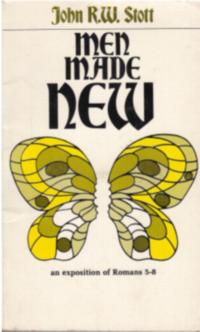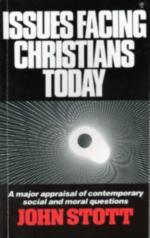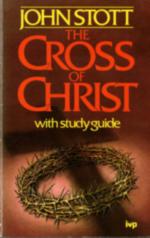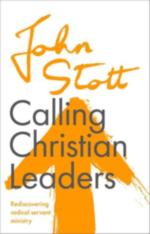Bishop Michael Stead
John Stott was prolific as an author. He wrote over 70 books between 1954 and 2010, of which many were careful expositions of the Scriptures that have served generations of Bible teachers.
One of Stott’s early works is also his most influential. Basic Christianity, which was published in 1958, has been rated by Christianity Today as one of the top 100 books of the 20th century. The book is, as the name suggests, a basic introduction to the Christian faith, which Stott examines under 4 headings — Who Christ Is, What We Need, What Christ Has Done, and How to Respond.
Stott was the editor of the New Testament commentaries in the Bible Speaks Today series and wrote one third of the commentaries in this series. Stott’s first commentary in this series, published in 1968, was The Message of Galatians. Derek Tidball has aptly described this commentary as an ‘excellent model for expository preachers, combining clarity of communication with careful exegesis, theological literacy and wise application.’
Stott was chair of the drafting committee that produced the Lausanne Covenant in July 1974. The Covenant expresses a renewed commitment to worldwide evangelism, and while making clear that social action is not evangelism, it recognises that both evangelism and social action are part of a Christian’s duty. This emphasis is also reflected in Stott’s Christian Mission in the Modern World (published 1975), where Stott argues that Christian mission must encompass both evangelism and social action, modelled on Jesus, who exemplified both the Great Commission of proclamation and the Great Commandment of love and service.
Stott’s final book, authored at age 88, was The Radical Disciple. In this, Stott examines eight characteristics of a radical disciple of Jesus—non-conformity, Christlikeness, maturity, creation-care, simplicity, balance, dependence and death.
Given the breadth of Stott’s writings, it is difficult to choose a ‘Big 5’ in any objective sense. Instead, I have asked 4 friends and colleagues to join with me in choosing their favourite Stott book, and say a little about its impact on them. The books are listed in the order of publication of the first edition.
MEN MADE NEW: AN EXPOSITION OF ROMANS 5-8 (1966)
Appreciation by Archbishop Glenn Davies
I remember reading Men Made New as a young man and being struck by its clear and compelling analysis of Romans 5-8. Its teaching on the ongoing work of sanctification in the life of the believer cut through the confusion in some parts of the evangelical world, especially the Holiness Movement associated with the Keswick Convention. The book was the written form of Stott’s addresses on Romans 5-8 at the 1965 Keswick Convention. These addresses marked a profound decisive turning point for both the Keswick Convention and Evangelicalism more widely.
My understanding of Romans 5-8 was profoundly shaped by what I learned from Stott and helped me understand the enormity of the cost of salvation and its profound implications for saints of the Old Testament as well as the New. Years later Stott would write his final contribution to the Bible Speaks Today series with his commentary on the whole book of Romans. I continue to be grateful to God for raising up a gifted Bible teacher of such clarity and conviction.
EPHESIANS (1979)
Appreciation by Bishop Peter Hayward
 In the early 1980s, each Wednesday afternoon over four months, I met with the minister of my church, and we worked through John Stott's recently published commentary on Ephesians. I read the assigned passage, studied the relevant section of Stott's commentary and then wrote Bible study questions.
In the early 1980s, each Wednesday afternoon over four months, I met with the minister of my church, and we worked through John Stott's recently published commentary on Ephesians. I read the assigned passage, studied the relevant section of Stott's commentary and then wrote Bible study questions.
I had first encountered Stott's writing when I purchased his little pamphlet Your Mind Matters at a crucial juncture in my Christian growth some six years earlier. Now, with this sustained close work on his Ephesians commentary, a foundation was developing that shaped my approach to the Bible that continues to inform my ministry today.
Stott laid four foundational elements as a given that continues to have an abiding influence on me. First, confidence that the Bible could be understood. At the time that was not self-evident to me or always modelled consistently. Second, the Bible is clear in what it is saying. Clarity might require had work, but you study the Bible with that conviction. Third, care is needed in understanding the original intent of the author. Such an approach required careful thinking in dependence upon the Holy Spirit. The obligation was to say what the Bible said. Fourth, the Bible is always contemporary: the Bible speaks today. Stott modelled a depth of understanding the world, or society as he uses in the commentary, with an abiding commitment to God’s word.
ISSUES FACING CHRISTIANS TODAY (1984)
Appreciation by Bishop Michael Stead
 I remember reading the first edition of Issues Facing Christians Today while at University in the late 1980s. I found it profoundly helpful, because it provided a biblical framework for responding to ethical and social issues. At that time, Stott’s theological reflection on nuclear war was especially pertinent.
I remember reading the first edition of Issues Facing Christians Today while at University in the late 1980s. I found it profoundly helpful, because it provided a biblical framework for responding to ethical and social issues. At that time, Stott’s theological reflection on nuclear war was especially pertinent.
Stott was prompted to write the book because, notwithstanding Evangelicals’ noble history of being instruments of social change in previous centuries (à la Wilberforce and Wesley), for much of the 20th century we have been less involved in social action than at any time in the history of evangelical Christianity. In the preface to the first edition, Stott describes the tensions he perceives in modern Evangelicalism on this issue, and his way through the tensions. Some Christians, anxious above all to be faithful to the revelation of God without compromise, ignore the challenges of the modern world and live in the past. Others, anxious to respond to the world around them, trim and twist God's revelation in their search for relevance. I have struggled to avoid both traps. For the Christian is at liberty to surrender neither to antiquity nor to modernity. Instead, I have sought with integrity to submit to the revelation of yesterday within the realities of today. It is not easy to combine loyalty to the past with sensitivity to the present. Yet this is our Christian calling: to live under the Word in the world.
In my assessment, Issues Facing Christians Today delivers on this promise. It shows us how to live under the Word in the world, addressing both perennial issues such as war and peace, and marriage and divorce, as well as more recent developments. This book has gone through several editions, with substantive updates to take into account newly emerging issues and changes in the global context. The 4th (and latest) edition was released in 2006, with an added chapter on biotechnology and updates to the discussions on abortion and euthanasia.
THE CROSS OF CHRIST (1986)
Appreciation by Bishop Peter Lin
 As a young Christian, who was probably more head than heart in how I was wired, I devoured information as much as I could. However, as a young Christian my head was not as fully formed as it would be, so the volume of information went in unfiltered, uncritiqued and uncategorised. I knew a lot but with little depth or how it all connected. Then I read The Cross of Christ. It put so much together in my head and was a clear turning point in my understanding of the gospel—the centrality of the cross, connecting the different angles of atonement, Trinity, the importance of understanding the cross through the Old Testament and so forth.
As a young Christian, who was probably more head than heart in how I was wired, I devoured information as much as I could. However, as a young Christian my head was not as fully formed as it would be, so the volume of information went in unfiltered, uncritiqued and uncategorised. I knew a lot but with little depth or how it all connected. Then I read The Cross of Christ. It put so much together in my head and was a clear turning point in my understanding of the gospel—the centrality of the cross, connecting the different angles of atonement, Trinity, the importance of understanding the cross through the Old Testament and so forth.
Yet as it all started coming together for me, something else happened. God used it to move what was in my head into my heart. What I knew and thoroughly believed, I began to appreciate more than merely intellectually. The Cross of Christ helped me understand the sacrifice and cost of the cross. It pointed me to the love of God in Christ’s death, not simply its justice. What was an equation now began to pierce my heart. That completely changed what it meant for me to live for Christ, because my token cerebral thankfulness became deep, heartfelt gratitude.
CALLING CHRISTIAN LEADERS (2002)
Appreciation by Bishop Chris Edwards
 Almost 20 years ago John Stott published a small book, Calling Christian Leaders, which is marked by his typically careful exegesis and humble submission to the Scriptures. Stott says he wrote this study of 1 Corinthians 1-4 because, as he visited churches around the world, he found too many behaving as if they believed in the papacy of pastors, not the priesthood of all believers. The autocracy he found, which is incompatible with the servant ministry exhibited by Jesus, opposes the teaching of Jesus and his apostles. He wrote to remind us of the example of the meekness and gentleness of Christ’s leadership. His brief study is a call for loving, gentle and humble leadership as opposed to the alluring autocratic models too many of us have adopted.
Almost 20 years ago John Stott published a small book, Calling Christian Leaders, which is marked by his typically careful exegesis and humble submission to the Scriptures. Stott says he wrote this study of 1 Corinthians 1-4 because, as he visited churches around the world, he found too many behaving as if they believed in the papacy of pastors, not the priesthood of all believers. The autocracy he found, which is incompatible with the servant ministry exhibited by Jesus, opposes the teaching of Jesus and his apostles. He wrote to remind us of the example of the meekness and gentleness of Christ’s leadership. His brief study is a call for loving, gentle and humble leadership as opposed to the alluring autocratic models too many of us have adopted.
Stott has really helped this needy steward of revelation, this underling of Christ, this piece of earthly scum, to face the world, whose opposition is inevitable; and to lead Christ’s flock, whose members need to be loved and served. Read 1 Corinthians with Stott and discover Christian leadership is not about severity, but gentleness. It is loving like parents, not disciplinarians. It is founded on humility. What a great book by a great author.
